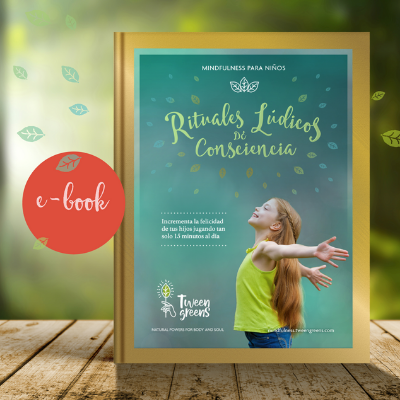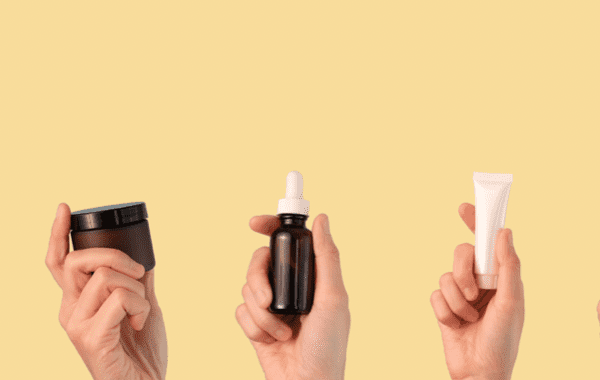In recent years, new trends related to personal care, have sought to create more conscious consumers in terms of the impact that certain beauty products and practices have on the environment, in our body and in our lifestyle. However, before we talk about these trends we must address a concept called “Conscious Beauty” which has gained a lot of relevance in recent times. However, before we speak about this trends, it is importanto to talk about a concept that has gaine much relevance through recent years that is called «Conscious Beauty»
What is conscious beauty?

On the other hand, it is already common to find social campaigns where the cultivation of good values in society is encouraged, especially when it comes to our children. Conscious Beautyreflects that consumers of this “new” reality are increasingly consumers of sustainable,
empathetic and supportive products. This is critical if we are to make a greater positive impact on our planet and the future of our children.
How is personal care perceived under the philosophy of Conscious Beauty?
We have turned our personal care routines into a monotonous process in which we repeat daily activities such as getting up, showering, brushing our teeth, using lotions or creams, etc., without stopping to analyze for a minute what it means to have a skin to clean, a few teeth to wash, and above all, the impact that simply takes care of us and pampers us in our mood.
“Conscious” self-care begins with gratitude to our bodies. With the understanding that every part of it, every organ, is there to bring us a benefit. The skin protects our muscles and takes care of the body temperature, the eyes help us to see, our mouth allows us to taste food, express ourselves, share emotions, sing. Our nose, allows us to enjoy delicious aromas. Our ears allow us to perceive the sound of the wind, the singing of a bird or the ideas of others.
Personal care goes beyond a routine. It’s an act of love with ourselves. If we want it, it allows us to place daily attention on the wonderful things that our material body gives us, and leave behind negative thoughts or ideas of ourselves. To look in the mirror to love us and not to judge us.

When we expand consciousness on our bodies, it is normal then that we make sure to place products on our skin that are not only responsible for our health, but also with the nature that contains us. It is here that the other two pillars of conscious beauty are opened: natural cosmetics and sustainability.
Natural Cosmetics and Awareness about what we place in our body

Some natural formulators choose to include in their products some synthetic products, which bring interesting properties to the final product, and that have been listed as harmless to health. For this reason, sometimes you may encounter products that claim to be natural by 95% or 98% for example.
The decision to choose between a 100% natural product or product with a lower natural percent will depend exclusively on you, and that’s why we like you to be informed about it.
Free E-Book: Fun Consciousness Rituals
Activities to practice mindfulness with Kids and Tweens
Sustainability and awareness of the impact of our products on the environment
Water-free products

It’s no secret that water is becoming one of the most important natural resources on the planet. Indeed, according to the report on water scarcity prepared by the U.S. government’s Office of Responsibility (GOA), it is estimated
that several U.S. states could face water scarcity in less than a decade. That is why some cosmetic brands have developed products that do not contain water, which hopes to reduce consumption, as well as avoid the use of preservatives that can sometimes be toxic or risky to health.
Unpacked products
These are products made in a solid presentation, which do not require the use of containers that cannot then be recycled and can affect the planet. Such products as have gained special relevance in hair care products.

Products packed in recyclable or biodegradable containers
Many consumers prefer the use of cosmetic products in their traditional presentations, which makes packaging necessary. To do this, contenders are used that can be easily recycled such as glass or aluminum, or that are biodegradable such as carton packaging, although these are limited to products without water.
Circular Economy
Despite the increasing use of glass and aluminum in the cosmetic industry, the truth is that this type of packaging increases the cost of the final product to consumers. That is why the use of plastic remains a cost-effective and perhaps the most widely used option in the industry. That is why companies that use plastic packaging accompany the sale of their products with circular economy campaigns that encourage the collection of used packaging and ensure its recycling.
Biodegradable Ingredients
When we think about the sustainability of our cosmetic products, we automatically think about packaging. However, we should also think about the ingredients that make up the product, since some of these are not biodegradable and affect the planet. An example of this

is the use of micro-plastics as exfoliating agents. These microparticles have been widely used in traditional cosmetics, regardless of their negative impact on the environment. That is why they have been banned in several states of the United States as well as in the countries of the European Union
Cruelty Free
Another trend that has been positioned within the concept of sustainability, is the use of products that do not affect animals, since like plants, they are living beings that are part of nature. That is why the fact that the products have not been previously tested in animals, has become an almost indispensable requirement in the choice of purchase of a consumer.
Why should you think about adopting a conscious beauty practice?

Free E-Book: Fun Consciousness Rituals
Activities to practice mindfulness with Kids and Tweens
In recent years, new trends related to personal care, have sought to create more conscious consumers in terms of the impact that certain beauty products and practices have on the environment, in our body and in our lifestyle. However, before we talk about these trends we must address a concept called “Conscious Beauty” which has gained a lot of relevance in recent times. However, before we speak about this trends, it is importanto to talk about a concept that has gaine much relevance through recent years that is called «Conscious Beauty»
What is conscious beauty?

On the other hand, it is already common to find social campaigns where the cultivation of good values in society is encouraged, especially when it comes to our children. Conscious Beautyreflects that consumers of this “new” reality are increasingly consumers of sustainable,
empathetic and supportive products. This is critical if we are to make a greater positive impact on our planet and the future of our children.
How is personal care perceived under the philosophy of Conscious Beauty?
We have turned our personal care routines into a monotonous process in which we repeat daily activities such as getting up, showering, brushing our teeth, using lotions or creams, etc., without stopping to analyze for a minute what it means to have a skin to clean, a few teeth to wash, and above all, the impact that simply takes care of us and pampers us in our mood.
“Conscious” self-care begins with gratitude to our bodies. With the understanding that every part of it, every organ, is there to bring us a benefit. The skin protects our muscles and takes care of the body temperature, the eyes help us to see, our mouth allows us to taste food, express ourselves, share emotions, sing. Our nose, allows us to enjoy delicious aromas. Our ears allow us to perceive the sound of the wind, the singing of a bird or the ideas of others.
Personal care goes beyond a routine. It’s an act of love with ourselves. If we want it, it allows us to place daily attention on the wonderful things that our material body gives us, and leave behind negative thoughts or ideas of ourselves. To look in the mirror to love us and not to judge us.

When we expand consciousness on our bodies, it is normal then that we make sure to place products on our skin that are not only responsible for our health, but also with the nature that contains us. It is here that the other two pillars of conscious beauty are opened: natural cosmetics and sustainability.
Natural Cosmetics and Awareness about what we place in our body

Some natural formulators choose to include in their products some synthetic products, which bring interesting properties to the final product, and that have been listed as harmless to health. For this reason, sometimes you may encounter products that claim to be natural by 95% or 98% for example.
The decision to choose between a 100% natural product or product with a lower natural percent will depend exclusively on you, and that’s why we like you to be informed about it.

Free E-Book: Fun Consciousness Rituals
Activities to practice mindfulness with Kids and Tweens
Sustainability and awareness of the impact of our products on the environment
Water-free products

It’s no secret that water is becoming one of the most important natural resources on the planet. Indeed, according to the report on water scarcity prepared by the U.S. government’s Office of Responsibility (GOA), it is estimated
that several U.S. states could face water scarcity in less than a decade. That is why some cosmetic brands have developed products that do not contain water, which hopes to reduce consumption, as well as avoid the use of preservatives that can sometimes be toxic or risky to health.
Unpacked products
These are products made in a solid presentation, which do not require the use of containers that cannot then be recycled and can affect the planet. Such products as have gained special relevance in hair care products.

Products packed in recyclable or biodegradable containers
Many consumers prefer the use of cosmetic products in their traditional presentations, which makes packaging necessary. To do this, contenders are used that can be easily recycled such as glass or aluminum, or that are biodegradable such as carton packaging, although these are limited to products without water.
Circular Economy
Despite the increasing use of glass and aluminum in the cosmetic industry, the truth is that this type of packaging increases the cost of the final product to consumers. That is why the use of plastic remains a cost-effective and perhaps the most widely used option in the industry. That is why companies that use plastic packaging accompany the sale of their products with circular economy campaigns that encourage the collection of used packaging and ensure its recycling.
Biodegradable Ingredients
When we think about the sustainability of our cosmetic products, we automatically think about packaging. However, we should also think about the ingredients that make up the product, since some of these are not biodegradable and affect the planet. An example of this

is the use of micro-plastics as exfoliating agents. These microparticles have been widely used in traditional cosmetics, regardless of their negative impact on the environment. That is why they have been banned in several states of the United States as well as in the countries of the European Union
Cruelty Free
Another trend that has been positioned within the concept of sustainability, is the use of products that do not affect animals, since like plants, they are living beings that are part of nature. That is why the fact that the products have not been previously tested in animals, has become an almost indispensable requirement in the choice of purchase of a consumer.






